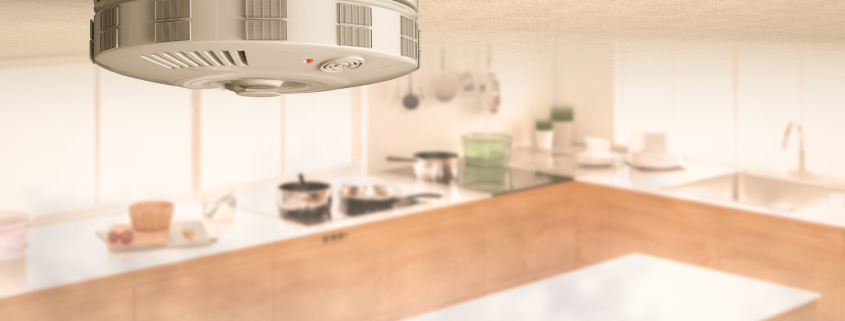Fire Safety in the Home: Protecting What Matters Most
Ensuring the safety of your home and loved ones should always be a top priority, and one critical aspect of home safety is fire prevention and preparedness. Fires can cause significant damage and pose a threat to life and property. However, by implementing proper fire safety measures, you can greatly reduce the risk and mitigate the potential impact of a fire. In this article, we will explore essential fire safety tips and guidelines to help you protect what matters most – your home and family.
- Install Smoke Alarms: Smoke alarms are your first line of defense against fires. Make sure to install smoke alarms on every level of your home, including bedrooms and hallways. Regularly test them to ensure they are functioning correctly, and remember to replace batteries at least once a year. Smoke alarms can detect smoke early and provide vital warning signs, allowing you to take immediate action and evacuate if necessary.
- Create an Escape Plan: Develop a comprehensive escape plan for your family in case of a fire. Identify multiple escape routes from each room and establish a meeting point outside the home. It’s crucial to practice the escape plan with all family members, including children, to ensure everyone knows what to do in an emergency. Remember, seconds can make a difference during a fire, so being well-prepared and rehearsed is crucial.
- Educate Family Members: Educate your family members about fire safety. Teach them how to safely handle matches, lighters, and other potential fire-starting items. Instruct them on the importance of staying low in smoke-filled areas, covering their mouths with a cloth, and never re-entering a burning building. By imparting fire safety knowledge, you empower your loved ones to make informed decisions during an emergency.
- Practice Kitchen Safety: The kitchen is a common area where fires can start. Never leave cooking unattended, especially when using an open flame or high heat. Keep flammable items, such as oven mitts and dish towels, away from the stove. It’s also crucial to have a fire extinguisher readily available in the kitchen and know how to use it properly. Taking simple precautions and practicing kitchen safety can prevent many fire-related incidents.
- Maintain Electrical Safety: Electrical malfunctions can lead to fires. Regularly inspect electrical cords and outlets for damage or wear and replace any frayed or damaged cords immediately. Avoid overloading outlets and use surge protectors when needed. Never run electrical cords under carpets or rugs, as they can overheat and start a fire. By maintaining electrical safety, you reduce the risk of electrical fires.
- Store Flammable Materials Safely: Flammable materials, such as gasoline, propane, and cleaning chemicals, should always be stored safely. Keep them in well-ventilated areas away from heat sources or open flames. Store them in approved containers with tight-fitting lids, and always follow the manufacturer’s guidelines for storage and usage. Proper storage and handling of flammable materials minimize the risk of accidental fires.
- Install Fire Extinguishers: Having fire extinguishers strategically placed throughout your home is essential. Familiarize yourself with the different types of fire extinguishers and their appropriate uses. Keep a fire extinguisher in the kitchen, garage, and other areas prone to fire hazards. Make sure all family members know how to operate a fire extinguisher effectively.
- Maintain Heating Equipment: Heating systems, such as furnaces, fireplaces, and space heaters, require regular maintenance to prevent fire hazards. Have your heating systems inspected and cleaned annually by a professional. Keep flammable materials at a safe distance from heating equipment, and never leave portable heaters unattended. Following proper maintenance protocols ensures the safe operation of heating devices.
- Stay Vigilant with Candles: Candles create a cozy ambiance but can pose a fire risk if not used safely. Never leave candles unattended and keep them away from flammable materials. Place candles in sturdy holders on stable surfaces, and extinguish them before leaving the room or going to bed. Consider using flameless LED candles as a safer alternative.
- Have a Fire Safety Kit: Prepare a fire safety kit that includes essential items such as a flashlight, a battery-powered radio, spare batteries, a first aid kit, and a list of emergency contacts. Keep the kit in an easily accessible location known to all family members. Having a well-equipped fire safety kit allows you to respond effectively during a fire emergency.
Fire safety is a vital aspect of protecting your home and loved ones. By implementing these fire safety tips, you can significantly reduce the risk of fires and be well-prepared to respond in case of an emergency. Remember, fire prevention and preparedness are ongoing efforts, and regular maintenance, education, and practicing fire safety measures are key. By prioritizing fire safety in your home, you create a secure environment where peace of mind and well-being thrive.



